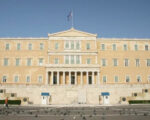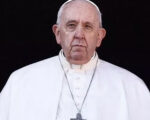[spacer]
>> Italy’s Prime Minister to Catholic Church: stay out of civil unions debate
[spacer]
Inquiet de l’enlisement des discussions concernant l’union civile des couples homosexuels, que le Sénat examine depuis le 28 janvier dernier, Matteo Renzi, jusque là plutôt discret, a appelé vendredi à la radio l’Eglise catholique à rester en dehors du débat. : « Quelle menace pourrait bien représenter deux personnes qui s’aiment ? », a rétorqué le premier ministre, qui réagissait aux déclarations du président de la Conférence des évêques d’Italie (CEI). Fervent opposant à l’ensemble du texte, Mgr Angelo Bagnasco avait la veille réclamé que le Sénat laisse s’exprimer les objections et soutienne « la liberté de conscience avec un vote à bulletins secrets ».
Peu importe, « la question relève du Parlement et non pas de la CEI », a déclaré le chef du gouvernement, rappelant que la décision revenait au président du Sénat, Pietro Grasso, qui avait déjà estimé que dans la mesure où le projet traite de droits des personnes, il relève d’un article de la Constitution et limite fortement la possibilité des votes à bulletins secrets.
« Les chrétiens conscients n’ont pas besoin d’un évêque qui les guide » avait également déclaré le mois dernier le pape François, martelant devant les juges de la rote romaine, qu’il ne pouvait y avoir « de confusion entre la famille et tout autre type d’union ». Mais si les Italiens sont majoritairement favorables à une certaine forme de reconnaissance juridique des couples de même sexe, seulement 24% soutiennent leur droit à l’adoption, comme le prévoit toutefois une proposition au projet, pour les enfants naturels d’un conjoint et seulement s’ils n’ont pas d’autres parents reconnus.
Les alliés centristes et une frange du Parti démocratique la refusent violemment. L’ancien Premier ministre Silvio Berlusconi y est favorable mais pas son parti Forza Italia (FI). Et la plupart des autres formations politiques, dont le Mouvement 5 étoiles (M5S) de Beppe Grillo, ne donneront pas de consigne de vote sur ce point.
Embourbés devant les centaines d’amendements, déposés notamment par des élus de la Ligue du Nord, proche du Front national français, les sénateurs devraient se retrouver cette semaine pour voter. S’ils ne parviennent pas à aboutir dans les négociations, M. Grasso pourrait décider de recourir à une proposition spéciale, qui permettrait d’accélérer la procédure, pour que le texte puisse être ensuite présenté à la Chambre des députés.
Terrence Katchadourian
stophomophobie.org
[spacer]
>> As Italy’s Parliament considers establishing civil unions for same-sex couples, the nation’s prime minister has called for the Roman Catholic Church to stay out of the debate.
Prime Minister Matteo Renzi made the comments Friday on RAI state radio, a day after the head of the Italian bishops’ conference recommended that the Senate allow a secret ballot on the civil unions bill, Agence France-Presse reports. Angelo Bagnascoso, the leader of the bishops’ group, said this would allow lawmakers to vote in accordance with their conscience and escape pressure to follow their party’s position.
“Parliament decides whether or not to allow secret votes … not the head of the bishops’ conference,” Renzi said in the RAI interview. “What is there to fear from two people who love each other? Why not give these rights to two people who love each other? The majority of the country is clearly in favor of it.”
Indeed, 70 percent of Italians support some form of legal recognition for same-sex couples, AFP notes, although only 24 percent favor adoption rights for these couples. The bill currently being considered would grant limited adoption rights, providing for one of the partners to adopt the other’s children, and extending this right to unmarried heterosexual couples as well.
Italy is the only major Western European country without any legal recognition for same-sex relationships, and the European Court of Human Rights has ruled that the lack of such recognition is a violation of human rights law. The Catholic Church’s influence is often cited as the reason for Italy’s failure to adopt a civil unions or marriage equality law. The church’s headquarters, Vatican City, is an independent city-state but is entirely within Rome’s borders.
Pope Francis entered the civil unions debate last month in an address to the Vatican court, saying, “There can be no confusion between the family God wants and any other type of union.” When he was a cardinal in Argentina, however, he opposed marriage equality but suggested civil unions as the “lesser of two evils.” He also said two years ago that the church should at least study civil unions as a way to can provide economic security to same-sex couples, but stopped short of endorsing the concept.
In the past few weeks, there have been massive demonstrations both for and against the civil unions bill. If the Senate passes it, it will go to the other house of Parliament, the Chamber of Deputies.


















